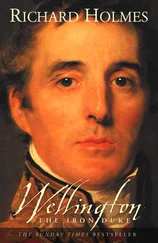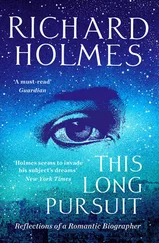At the age of seventeen, just before he left Bristol for London, Chatterton was to write one of his most outlandish and ambivalent documents, a Will. In it, he addressed his stupid and ungenerous patrons of reality, and to one of them wrote this:
Thy friendship never could be dear to me;
Since all I am is opposite to thee.
If ever obligated to thy purse
Rowley discharges all; my first chief curse!
For had I never known the antique lore
I ne’er had ventur’d from my peaceful shore,
To be the wreck of promises and hopes,
A Boy of Learning, and a Bard of Tropes;
But happy in my humble sphere had mov’d
Untroubled, unsuspected, unbelov’d.
Of course, it asserts nothing except Rowley’s primary importance and responsibility. The whole piece is shot through with a bitter ironic flare characteristic of Chatterton. Those last three epithets are much more curious than they seem at first sight; and the idea that Chatterton would ever conceivably have been ‘happy in his humble sphere’ is laughable. Chatterton must have laughed as he wrote it. But if so, the laughter must have sounded harsh.
The creation of Rowley is one of the most extraordinary events in English literature. It is not easily accounted for. A body of scholars stood out against it for some thirty years after Chatterton’s death. Chatterton’s own acquaintances – who invariably and incorrectly thought that they were his intimates, a notable point – were adamant almost to a man. One Mr T. Cary writing in 1776: ‘Not having any taste for ancient poetry, I do not recollect his ever having shewn them to me; but that he often mentioned them, at an age, when (great as his capacity was) I am convinced he was incapable of writing them himself, I am very clear in, and confess it to be astonishing, how any person, knowing these circumstances, can entertain even a shadow of a doubt of their being the works of Rowley.’ (Interestingly, Cary then adds a sentence which reveals in a flash his deep but unconscious sense of the ambiguity of identity in Chatterton: ‘Of this I am very certain, that if they are not Rowley’s, they are not Chatterton’s.’) Even in this present age, when every sixth-former is drilled with Ezra Pound’s idea of the poetic persona and T. S. Eliot’s concept of impersonality and the ‘objective correlative’, the Rowley–Chatterton relationship remains as extraordinary and mysterious as ever. Though W. P. Ker in The Cambridge History of English Literature has a perceptive observation: ‘Nothing in Chatterton’s life is more wonderful than his impersonality; he does not make poetry out of his pains or sorrows, and when he is composing verse, he seems to have escaped from himself.’ That last phrase can be taken more literally than Ker meant.
The crucial fact about the creation of Rowley is that Rowley grew as Chatterton grew. In 1760, when Chatterton was eight, he was sent to board at Colston Hall, a local charity school, and he remained there until he was fifteen. Colston served bad food and bad education. Its curriculum ran to the Three Rs only, with nothing remotely scientific or classical. It is said that owing to the combination of too much free time and too little free space, the pupils usually slept for ten or twelve hours a day, and this generally with two or three of them to a single bed. It makes one speculate on what strange world of half-waking companionship this unusual situation fostered. The single most suggestive fact, however, concerns a tiny detail of the Colston Hall uniform which went unnoticed for almost a century. The Colston Hall charity boys were required to wear a blue gowned overall belted at the waist, and to have their hair cut short and tonsured, like so many little novices in a monastery. The adolescent Chatterton must indeed have felt a curiously vivid and physical identity with his poet-monk Thomas Rowley: a presence as yet unnamed, but nevertheless swiftly growing now from its childhood origins in the Muniment Room with its high slit windows above the North Porch of St Mary Redcliff.
One of Chatterton’s earlier recorded poems has a striking bearing on the psychology of this long moment of wonderful but also sinister gestation. It was written in 1763 when he was eleven. It is not a so-called Rowley poem, but his first excursion into the snappy, efficient, satirical style currently fashionable: all couplets and nudges. From the start, Chatterton could turn this out effortlessly. The poem is called ‘Sly Dick’. It purports to tell of someone who receives a visitation from the Devil during the night, which informs him how he may make his fortune – dishonestly of course. How conscious Chatterton was of the underlying drama of this little piece of doggerel – particularly in its terms of night-visitation, temptation, hidden location of fortune, and secretive manner of exploitation – the reader may judge for himself.
Sharp was the frost, the wind was high
And sparkling Stars bedeckt the Sky,
Sly Dick in arts of cunning skill’d,
Whose Rapine all his pockets fill’d,
Had laid him down to take his rest
And soothe with sleep his anxious breast.
‘Twas thus a dark infernal sprite
A native of the blackest Night,
Portending mischief to devise
Upon Sly Dick he cast his eyes;
Then strait descends the infernal sprite,
And in his chamber does alight:
In vision he before him stands,
And his attention he commands.
Thus spake the sprite – Hearken my friend,
And to my counsels now attend.
Within the Garret’s spacious dome
There lies a well stor’d wealthy room.
Well stor’d with cloth and stockings too,
Which I suppose will do for you …
When in the morn with thoughts erect
Sly Dick did on his dream reflect,
Why faith, thinks he, ‘tis something too,
It might – perhaps – it might – be true
I’ll go and see – away he hies,
And to the Garret quick he flies,
Enters the room, cuts up the clothes
And after that reeves up the hose:
Then of the cloth he purses made,
Purses to hold his filching trade.
The true identity of the ‘Garret’s spacious dome’, and the store of cloth which he ‘cuts up’ to make his fortune, flash up at one instantly. They are of course the Muniment Room and the ancient papers within it. Without leaning on this little piece too much, it seems likely that the eleven-year-old Chatterton at some level or other was powerfully aware of the peculiar forces now gathering in and around him ready for his disposal. They had not yet taken the shape of Rowley. But already he was deeply divided as to whether it would be for the best or for the worst. His second early poem, ‘Apostate Will’, about a Methodist preacher who turns High Anglican when a convenient place is offered, contains a similar sense of a ‘filching trade’, and also that characteristic feeling of ambivalent identity which is so marked in Chatterton and the nature of his creative gift. (Both poems also have strong elements of childish plagiarism, relating to fables by John Gay.)
Strictly speaking, this is to anticipate. The first piece of ‘medieval’ writing was not actually made public by Chatterton until he was fifteen and had left school; and then, in answer to inquiries, he was to say – defending his ‘originals’ from first to last – that he had only recently discovered such great treasures in his mother’s house. But it seems unquestionable that Rowley and the world of Rowley’s fifteenth-century Bristol had been maturing long and steadily in Chatterton’s mind and imagination. Colston Hall, built on the site of the medieval Priory of St Augustine’s Back, was always remembered favourably by him in this connection. In his ‘Will’ he adopts the satiric medieval practice, used notably by François Villon, of bequeathing his better qualities (such as Modesty) to the various public figures who are most in need of them. His ‘disinterestedness’ is bequeathed as follows, in a wry passage which connects Rowley and Colston Hall: ‘Item … To Bristol all my spirit and disinterestedness, parcels of goods unknown on her quay since the days of Canning and Rowley! ‘Tis true a charitable Gentleman, one Mr Colston, smuggled a considerable quantity of it, but it being proved that he was Papist, the Worshipful Society of Aldermen endeavoured to throttle him with the Oath of Allegiance.’ Chatterton rarely had anything good to say for a modern institution of Bristol, and when he does, it is remarkable.
Читать дальше












